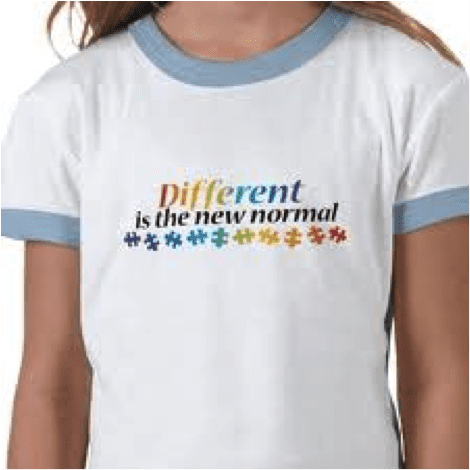My Socio-technical Systems (STS) writing co-horts and I loosely refer to the current global economic and social environment as the “new normal” — a term we did not invent but are seeing used to define conditions in diverse contexts.

As my first google revealed, “new normal” was coined by a thought leadership team at PIMCO (2009), the world’s largest bond fund manager, in reaction to the American economic recession. Apparently in the financial sector, this term explains the persistence of “a sluggish U.S. economy” characterized by –
• a 2% growth economy (instead of the usual 3%)
• less job creation (only 700,000/year)
• higher unemployment (12%)
• less consumer spending (an atmosphere of frugality)
• lower returns on savings and investments (by 50%)
• global shrinking of the public sector
Along a similar vein in a 2009 Atlantic blog, an ABC News political reporter stated, the New Normal “specifically applies to consumer spending.” In a consumption economy, consumer spending accounts for 70% of the GDP and is believed to be the kick-starter for economic recovery.
McKinsey Quarterly (2009) took a bit broader view claiming the New Normal is in essence “a restructuring of the economic order” from which the current fog of uncertainty will lift to reveal —
• increased rewards for productivity gains
• expanded regulatory roles for governments
• increased financial transparency and disclosure
• continued technological innovation
• shifted economic ‘centre’ from west to east
A more recent reference to the New Normal emerged as Peter Hinssen’s 2010 book, The New Normal in which Hinssen contends the New Normal is about all things digital — a “society without digital limits” — where the fact that “technology in the home having eclipsed technology in the workplace” has resulted in customers applying the following new rules —
• zero tolerance for digital failure
• internet access anytime, anyplace
• instantaneous information
• interactive, experience-based economy
• easy and interesting customer experiences
• rapid adaptation of IT
And finally, other defining statements for the New Normal —
• texting is the new normal
• tolerance is the new normal
• change is the new normal
• climate extremes are . . .
• variable-rate mortgages at prime . . .
• a race neutral society (kaleidoscope in a melting pot) . . .
• internet shopping . . .
• less and smaller retail work spaces/places . . .
• on-line income . . .
• self-service . . .
My point is that New Normal has taken on a much broader set of characteristics than its originators intended. You might say the term has gone viral and become the all-encompassing descriptor for a shared global experience across the entire spectrum of our lives — spiritual, physical, intellectual, communal and emotional (SPICE). Furthermore, for those who see the glass as half full, the New Normal is the SPICE of our lives — the opportunity for radical reform of our behaviours (actions), beliefs (mindset) and being (identity).
To come full circle, my STS writing team also defines the New Normal within our own context of designing organizing systems and processes at the enterprise, network and societal levels. As we collaboratively labour to understand our collective experience in the world of work, this New Normal requires each of us to personally reframe what we believe in while at the same time both redesign how we live and work and rediscover our authentic identity. The New Normal invites three levels of analysis in both one’s internal experience (actions, mindset and identity) as well as one’s external experience in the world of work and play (enterprise, network and society).
Next week, I hope to blog on a list of characteristics that define the New Normal within the context of work and play. What does your experience tell you about your New Normal? Let me know so I can add your comments to the list.




